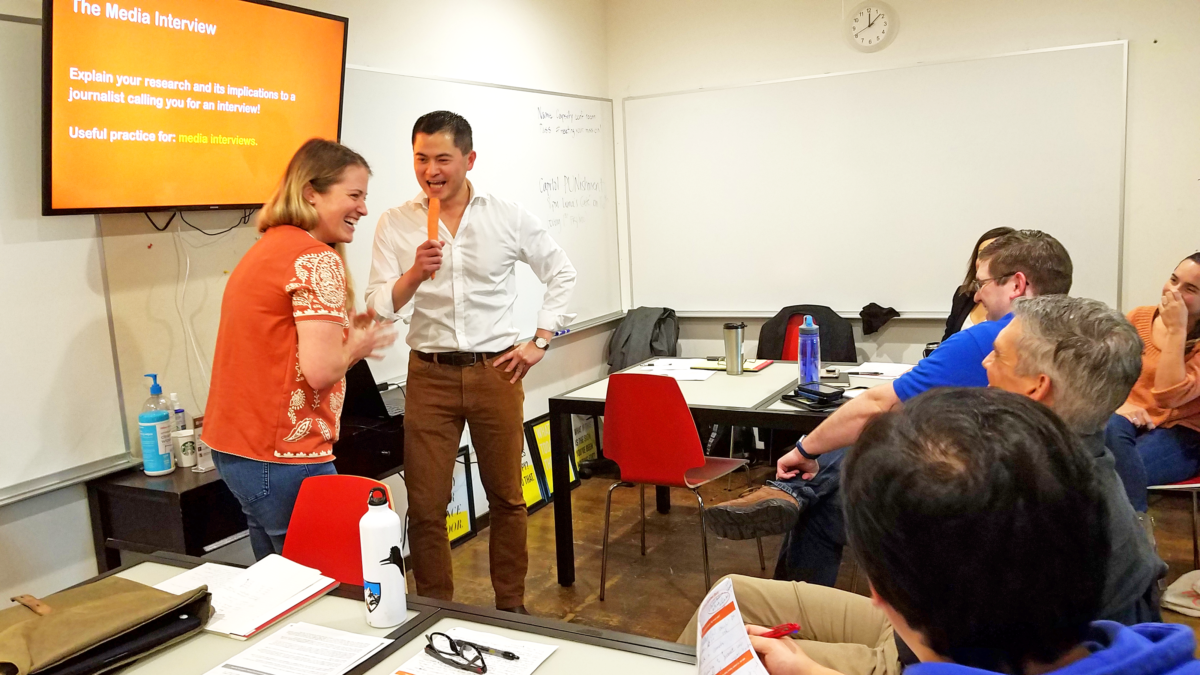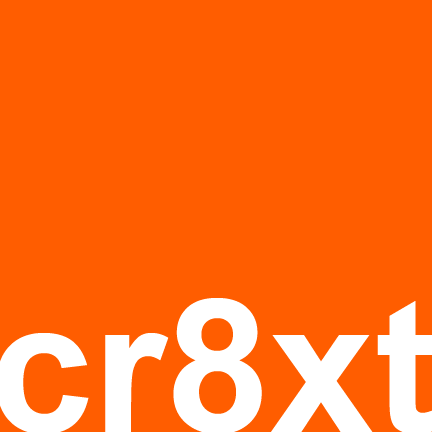“Connecting with Your Audience” (#CWYAscicomm) is an introductory workshop designed for the science student or professional who need a primer or refresher on audience engagement. Taught in tandem with the Connecting with Your Audience Worksheet, this curriculum was designed with pedagogy and learning in mind. Originally a standalone offering, it is now part of the part of the SciPolComm coursework series.
The CWYA Workshop and its excerpts have been taught at these programs and events: California Department of Water Resources Quality Assurance Program • CCST Science & Technology Policy Fellowship Program • Delta Science Fellows Program • NorCal SETAC Annual Meeting • SETAC North America Annual Meeting • Science Talk ’18 • SCONC Drink-n-Think • Sigma Xi Annual Meeting and Student Research Conference • UC Santa Cruz Coastal Science & Policy
The Story
As scientists, we inherently understand the importance of our work, focusing on the experimental and analytical methods to explain the natural world or to answer policy questions. But, we often get stuck explaining the finer details of our research — which is not the best way to draw interest from public stakeholders.
So, how can we communicate the big-picture implications of our work in a relaxed, relatable manner? How we think through the concept of the “audience” — breaking down the notion of the “general public” into meaningful contexts, cultures, and identities, to better help us connect with our audience?
Through the CWYA Workshop and Worksheet, we can learn to understand and empathize with our audience, be they a journalist, a parent, or industry investor. We can use these insights to compose engaging talking points and scripts, readily usable in situations spanning media interviews, policy briefings, outreach fairs — or even just a fun outing with new friends and colleagues.
When we successfully connect with our audience, we can help inform their decisions, inspire their curiosity, and broaden their understanding of the natural world around them. Begin exploring your scicomm practice today — and help amplify the impact of your research tomorrow!
The Process
A key mantra from my Education coursework in college has always stuck with me:
To successfully teach, you must induce learning.
I kept this thought firmly in mind when designing the CWYA workshop and worksheet. Although all scicomm workshops inherently emphasize the same core principles, I wanted to create a curriculum and all-purpose tool that could walk any user through the audience analysis and information translation processes, step by step.
Of course, this mode of thinking is instantaneous and second-nature to any professional science writer or communicator — but teaching this way of thinking is a design challenge in itself. I wanted to make sure that every workshop participant has the opportunity to hear, reflect, imagine, analyze, and practice these concepts, rather than just sit through a single lecture or activity. Participants can then self-refine these approaches by taking home the CWYA Worksheet — which they can use over and over again, adapting for any combination of research topic and target audience.
CYWA now serves as the foundational content for any scicomm workshop I create and lead. Once again, I have my friend and colleague Kelly Conroy to thank for her assistance in producing the pilot edition of the CWYA workshop and worksheet (full story here). While CWYA has been refined and improved over the years, Kelly’s experience and feedback during our two pilot workshops helped affirm this curriculum and its intention.
Join me for a CWYA workshop sometime. I hope it can help many of you begin developing your science communication craft — so that your good work can make lasting impact for science, environment, and society.
— Ben Young Landis
Gallery
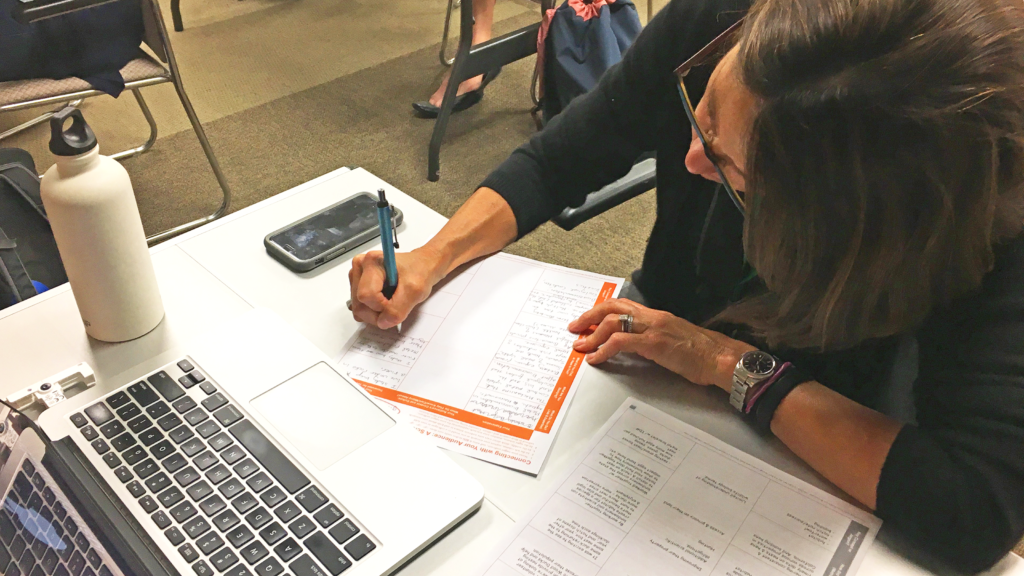
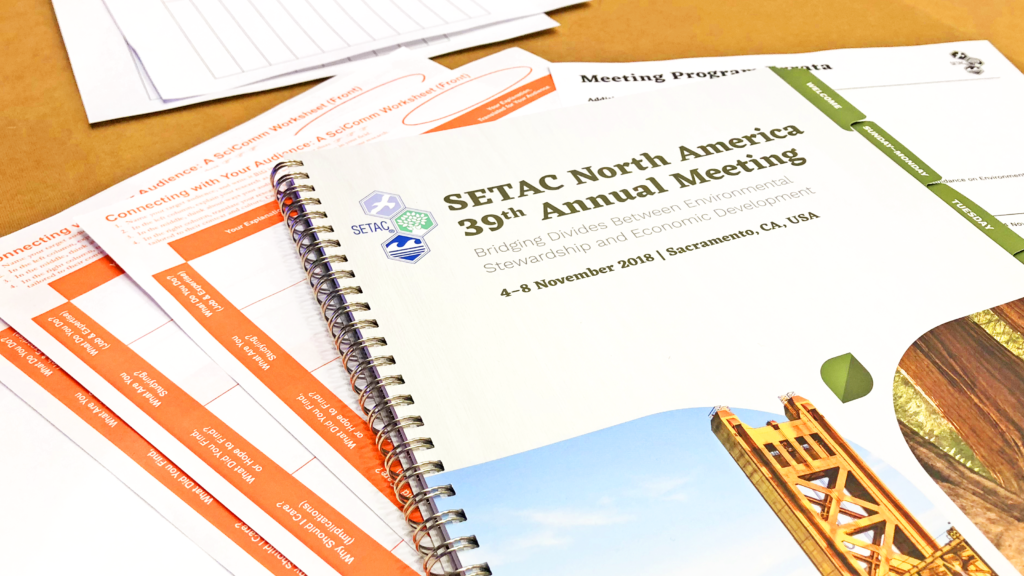
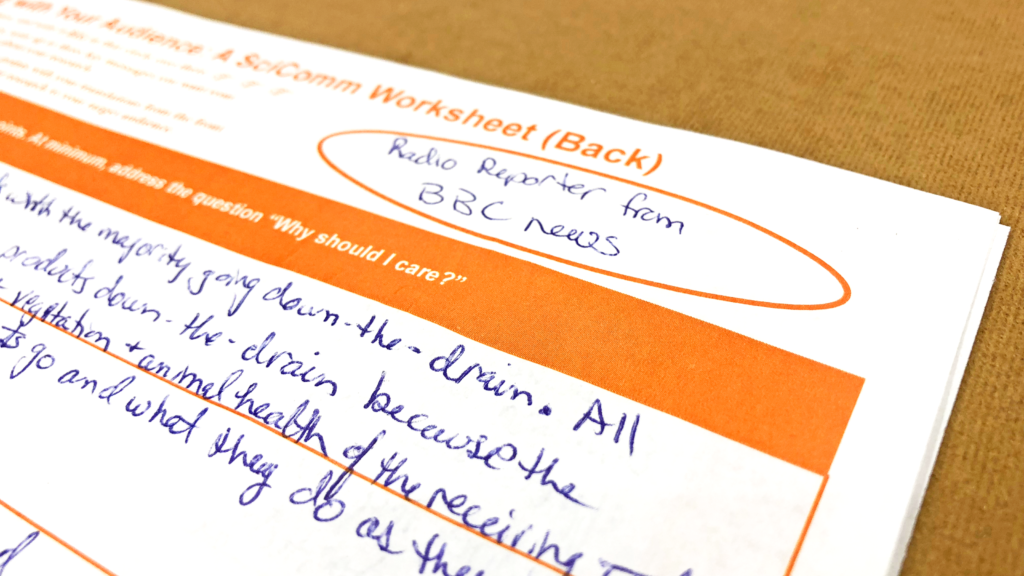
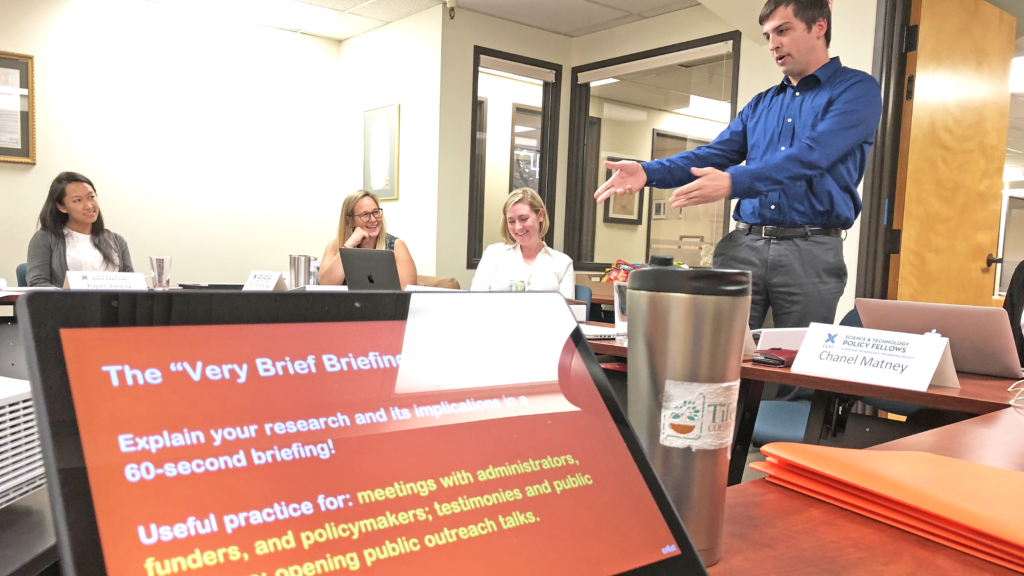
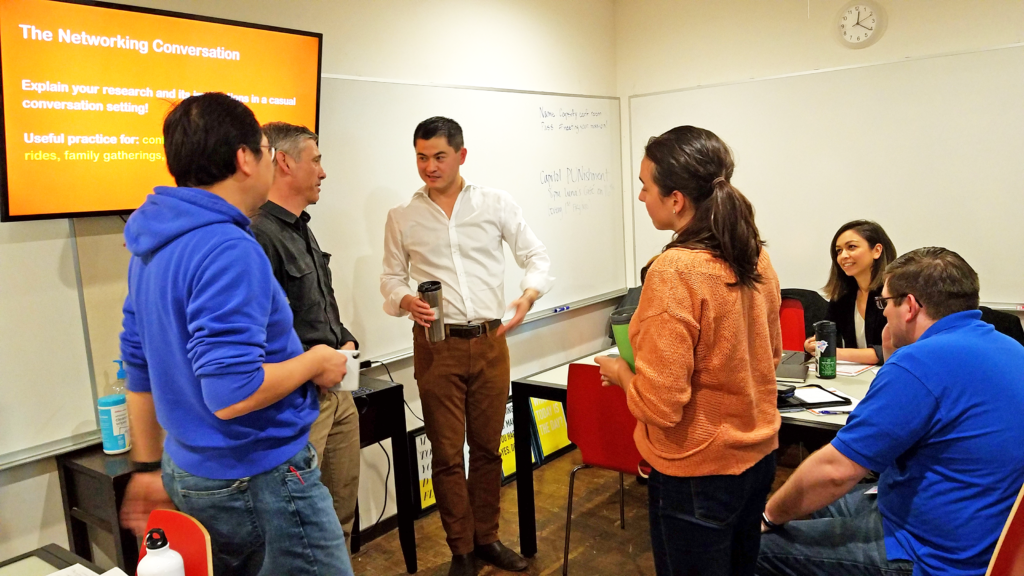
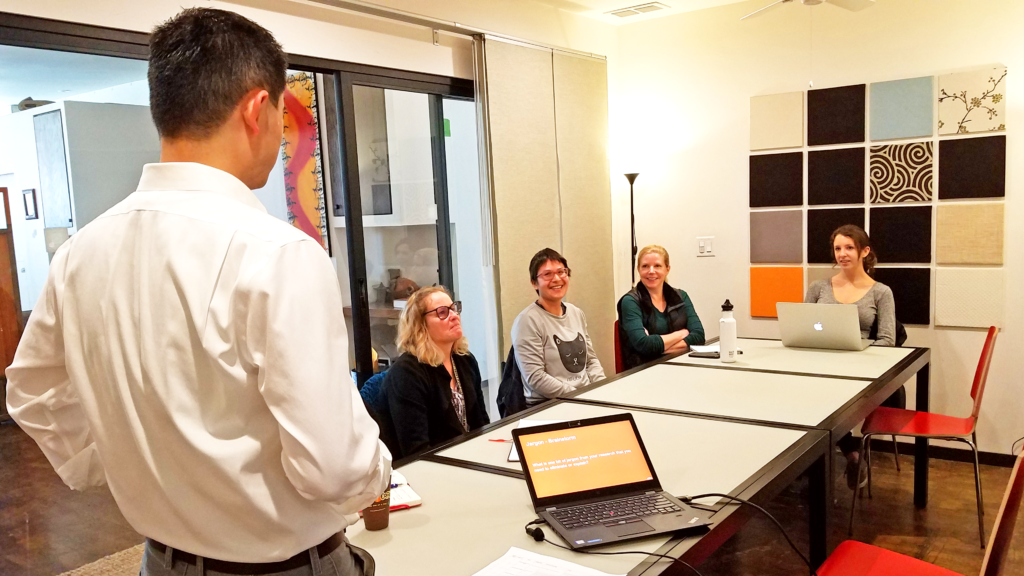
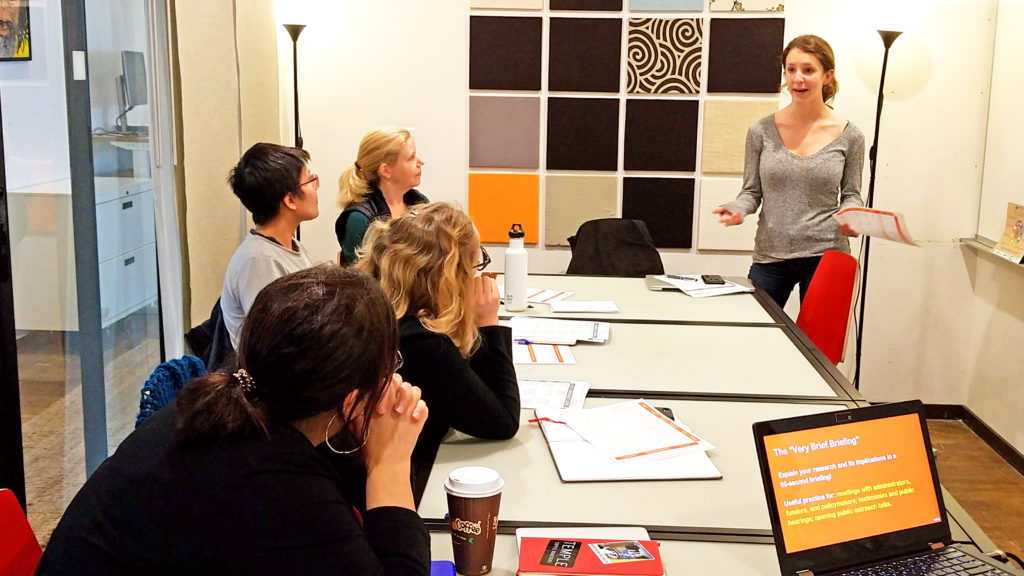
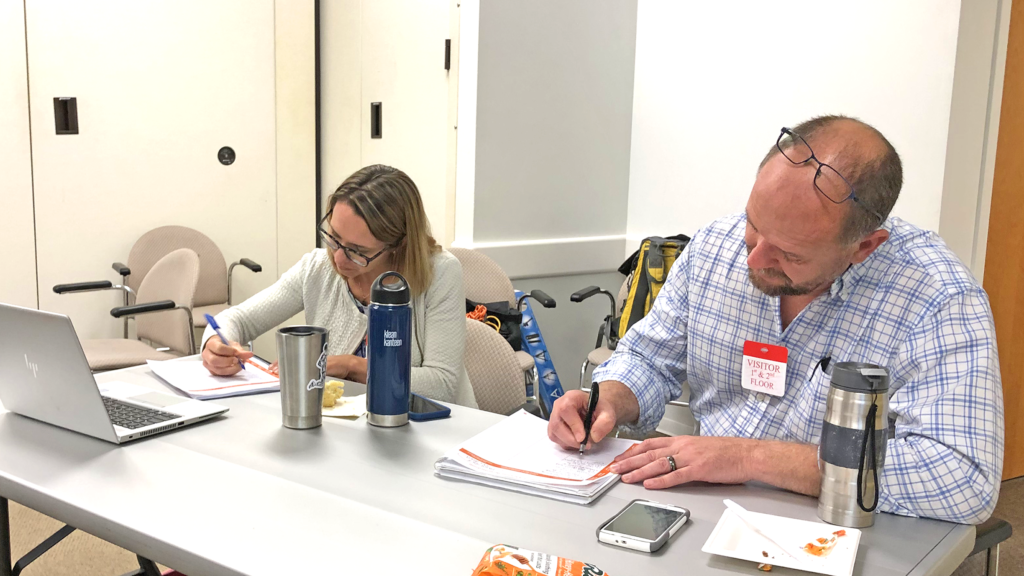
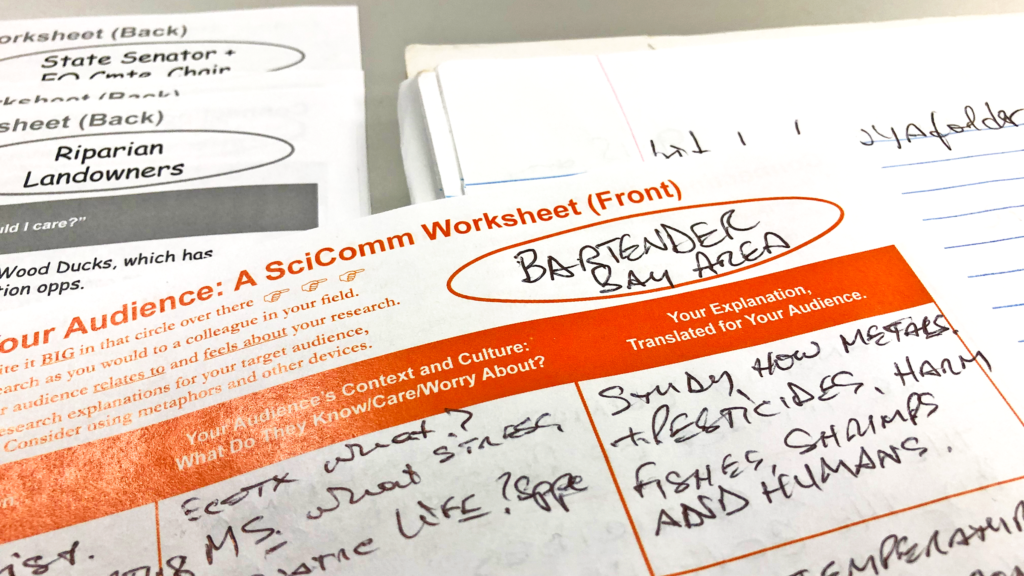
In Their Words
This was an insightful workshop and a great way to practice some light science improv in a relaxed setting. Great for anyone looking to gain confidence or get practice explaining something complex!
Victoria Strait, Doctoral Candidate in Physics, UC Davis
This course has helped me to distill my research ‘story’ to communicate the importance of my work to any audience. Every scientist needs more training like this!
Krista Hoffman PhD, President, NorCal SETAC
Great workshop! Highly recommend this to both new and experienced scientists.
Richard E. Connon PhD, Associate Adjunct Professor in Molecular, Cellular and Integrative Physiology, UC Davis
Activate
For more information, please contact [email protected]
Credits
Series Creator: Ben Young Landis
Creative Direction: Ben Young Landis
Lead Designer: Ben Young Landis
Lead Trainer: Ben Young Landis
Pilot Production Credits
Content Development: Ben Young Landis and Kelly Conroy
Lead Trainers: Ben Young Landis and Kelly Conroy
First Delivered: April and May 2017
